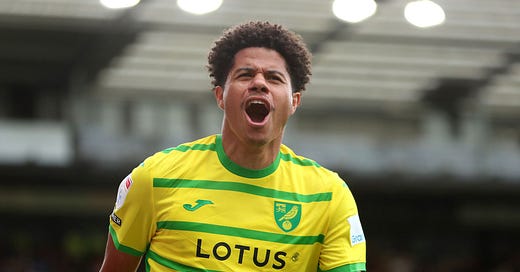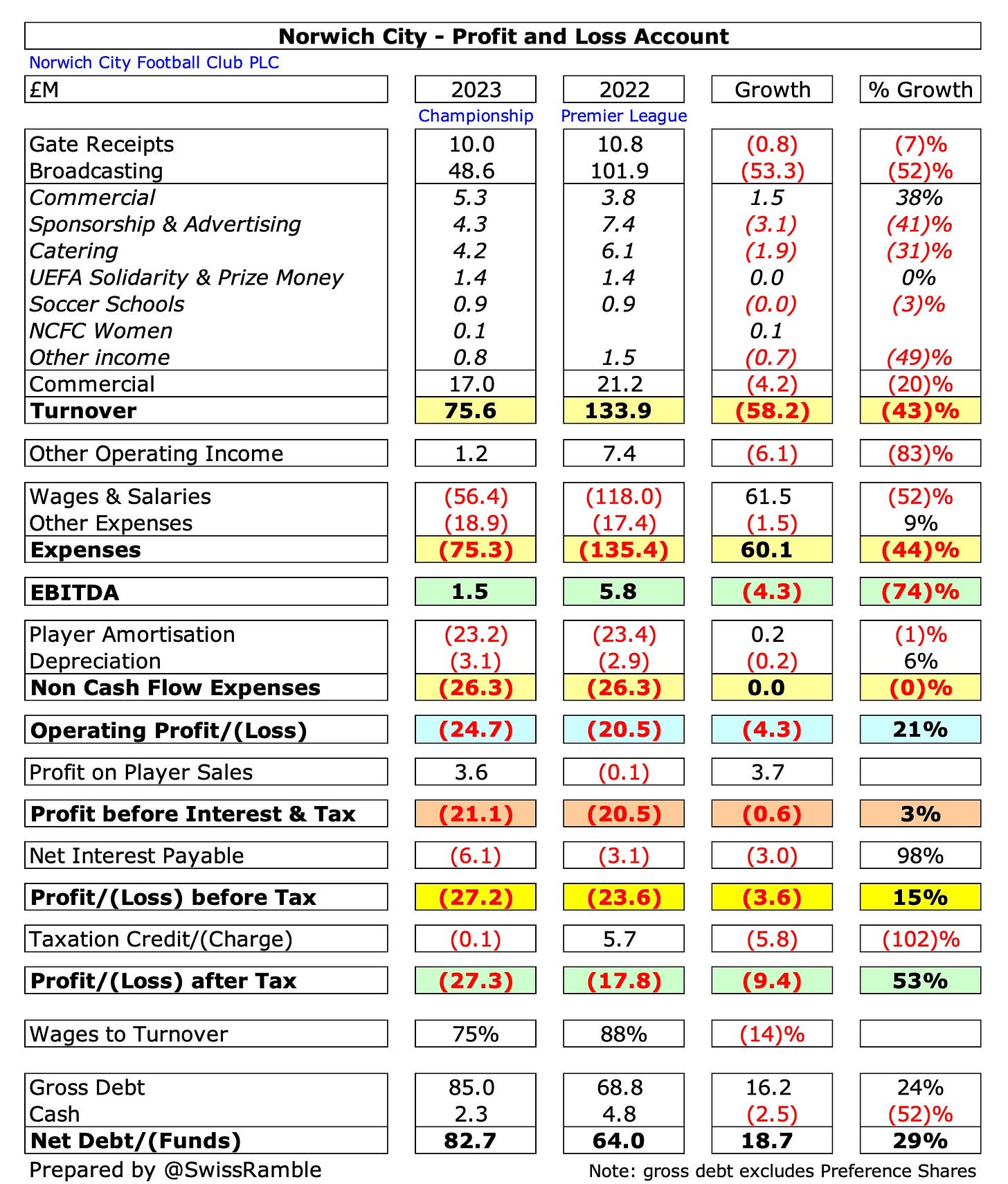Norwich City’s 2022/23 accounts cover a season when they finished 13th in the Championship following relegation from the Premier League the previous year. This was clearly a disappointment to the club, as admitted by executive director Zoe Webber, “To finish outside the play-off places fell below the expectations we had heading into the campaign.”
As a result head coach Dean Smith was dismissed in December, to be replaced by David Wagner, but the team failed to mount a promotion challenge under the German.
Ownership
After many years under the guidance of Delia Smith and Michael Wynn Jones, the Norwich City are increasingly influenced by Michael Attanasio, the owner of American baseball team Milwaukee Brewers.
He first purchased a minority stake from former director Michael Foulger last year, but the club has recently ratified the acquisition of many more shares, bringing his shareholding to the same 40% level as Smith and her husband.
At the time of Attanasio’s initial involvement, Smith said, “We feel he will be a breath of fresh air in our board and football club”, though it’s understood that the “old guard” will remain in control of the day to day running of the club until at least January 2026.
Changes
However, it’s clear that the fans are very unhappy, as epitomised by a very blunt statement from the Canaries Trust.
“The completion of the legal process with Mark Attanasio seems to finally be approaching a conclusion, but, from an outside perspective there’s no overall sense of leadership, or direction, and supporters are desperate for some sense of a vision that we can all buy into and move forward together.
It's sad to say that many supporters now feel completely disconnected from the club we all support, and many are turning up to games out of a sense of duty, rather than a compelling desire to attend matches. Apathy is widespread and some are questioning whether they want to continue attending games despite having done so for decades in some cases.
Something has to change, but the supporters can’t bring that change about: it must come from within the Club and we trust that the current silence will be broken before the situation deteriorates further.”
Long-serving sporting director, Stuart Webber, had already announced his departure, to be succeeded by Arsenal’s loans manager, Ben Knapper. However, as a sign of the club’s growing concerns, both of these moves were brought forward this week in an attempt to stop the decline (Norwich currently sit in a lowly 17th position in the Championship).
So things are not looking too good on the park at the moment, but how are Norwich City doing off the pitch?
Profit/(Loss) 2022/23
Norwich City’s pre-tax loss widened from £24m to £27m, as revenue dropped £58m (43%) from the club record £134m to £76m following relegation to the Championship. This was partly offset by profit from player sales increasing from zero to £4m, though other operating income fell £6m (83%) from £7m to £1m.
The loss would have been even higher without a significant reduction in operating expenses, which were cut by £60m (37%) from £162m to £102m, though interest payable doubled from £3m to £6m.
As Finance Director Anthony Richens wryly observed, “Relegation from the Premier League significantly impacts club finances.”
The main driver of Norwich’s £58m revenue decrease was broadcasting, which more than halved in the Championship, falling by £53m from £102m to £49m.
The other revenue streams were also lower, though the club did well to limit the size of the decrease, which Richens said was “a credit to a loyal supporter and partner base.”
As a result, match day was down just £0.8m (7%) from £10.8m to £10.0m, while commercial dropped £4m (20%) from £21m to £17m.
Norwich compensated for lower revenue with a steep reduction in the wage bill, which was cut by £62m (52%) from the club’s all-time high of £118m to £56m. However, player amortisation was largely unchanged at £23m, while other expenses rose £2m (9%) from £17m to £19m.
Norwich are the only Championship club that has to date published accounts for 2022/3, but their £27m pre-tax loss is clearly on the high side for the division, looking at other clubs’ results from the previous season.
Keep reading with a 7-day free trial
Subscribe to The Swiss Ramble to keep reading this post and get 7 days of free access to the full post archives.






